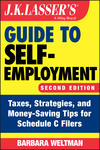Answered: October 28, 2021 1:27 am
I do mobile sports betting with the intent of making a profit. How to I report my activities?
There are different tax reporting rules for professional gamblers versus those who gamble for fun. A professional gambler is someone who spends substantial time on a regular basis in gambling activities and operates in a businesslike manner (e.g., keeps good books and records; has a separate business bank account). There’s no bright line (i.e., set number of hours, amount of dollars wagers) to make this determination; it’s a case-by-case basis. Professional gamblers are treated as self-employed individuals who report their income and expenses (but only to the extent of gambling winnings) on Schedule C of Form 1040 or 1040-SR. They are also subject to self-employment tax on their net income. Those gambling for fun report their winnings as “other income” on Schedule 1 of the return, while deducting gambling losses to the extent of gambling winnings as an itemized deduction on Schedule A of the return. If they claim the standard deduction, there’s no write-off for losses. They may not be netted against winnings.
Placed in service
The time when a depreciable asset is ready to be used. The date fixes the beginning of the depreciation period.



